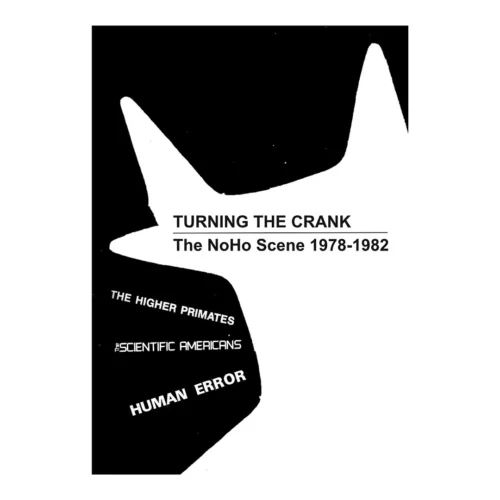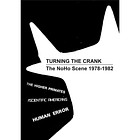Art schools are sometimes suspected of sabotaging art. For some students from Pioneer Valley in Massachusetts in the 1970s and 1980s, this was not the case: a visionary experimental music scene emerged in the orbit of five art colleges. Now José Moura, one of the owners of Lisbon’s Flur record store, has dedicated a research project to a part of this scene. The result is the »NoHo EP« and the little book »Turning The Crank: The NoHo Scene 1978-1982«. Moura uses mainly emails from his protagonists (a small drawback: they are all male) and Facebook or blog posts to shed light on the scene’s rise and fall, its locations and influences. In favour of anecdote, »The NoHo Scene« makes no attempt to classify events and is as objective as a story based mainly on personal memories can be, but it’s all the more entertaining for that.
It begins with the enigmatic professor of physics and electronic music, Everett Hafner, who, in addition to his work as a university dean, dabbled in synths—helping none other than Stevie Wonder to his very first vocoder. Inspired by Hafner, his student James Whittemore founded the bands Scientific Americans and later Human Error. In Chris Vine and Elliott Sharp, Whittemore had found instrumentalists uninhibited enough to play guitars and saxophones over his nerdy synth fiddling. Nick Brown joined later and The Higher Primates were born.
The sociology of a scene
What united them all, and can be heard on the EP, was their love of new wave, free jazz, dub and electronic music in general. This mixture found its place on the specially formed Tekno Tunes label and was a success: they supported Suicide, The Slits, Steel Pulse and Pere Ubu. J. Masics of Dinosaur Jr. is also said to have gone to many of the Scientific Americans’ gigs. As well as old photos, posters and a brief excursion into the now forgotten tradition of telephone bars, »The NoHo Scene« is also worth reading for the sometimes hilarious old newspaper articles and reviews. For one critic, The Scientific Americans sounded like a meeting between Chuck Berry and Godzilla, while another preferred rock music without the synths: »Electronics are sterile: they cannot convey emotion«. Whether we are all insensitive when we listen to music today is a question for another time.



